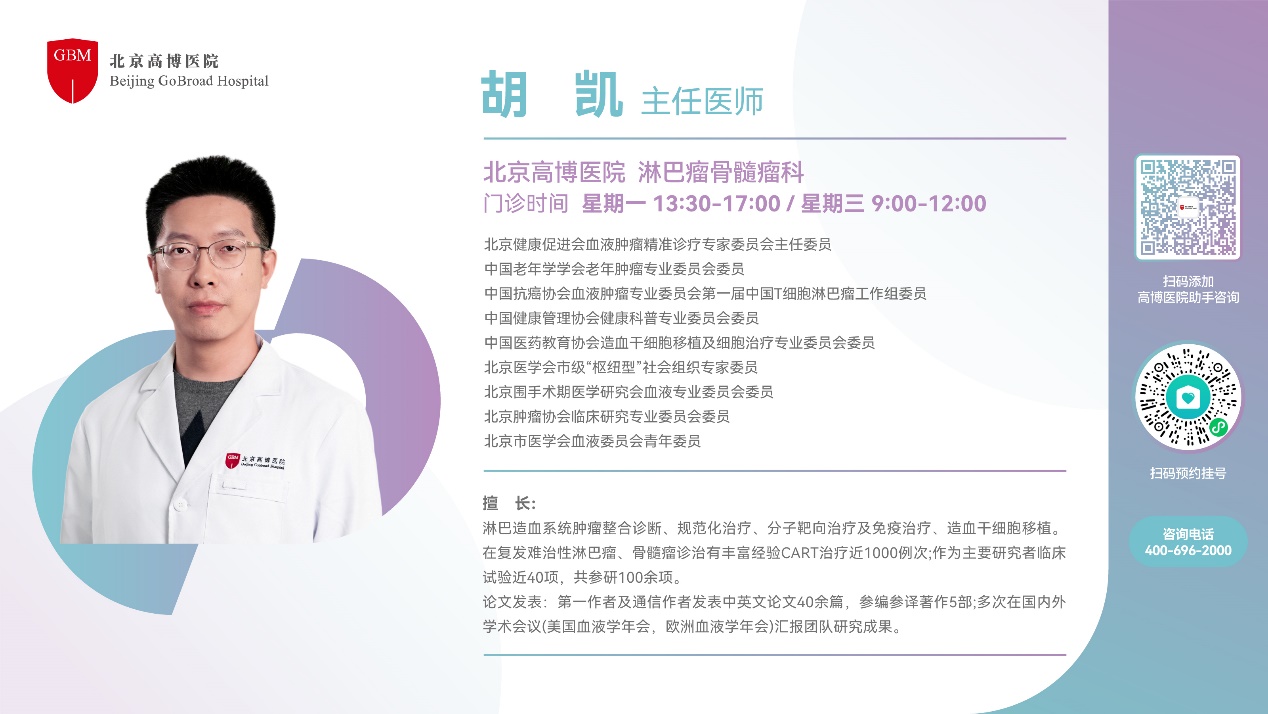Clinical Trial | Recruitment for B-Cell Non-Hodgkin Lymphoma Patients
Relapse after autologous CAR-T therapy in lymphoma patients remains a significant clinical challenge. Existing comprehensive clinical data suggest that dual-target CAR-T therapy can achieve a longer progression-free survival (PFS) compared to single-target CAR-T therapy, effectively delaying or reducing relapse. To date, clinical research on dual-target CAR-T therapy for relapsed/refractory hematological diseases has made significant progress. Dual-target CAR-T therapies targeting CD19/CD20, CD19/CD22, CD19/BCMA, or BCMA/CS1, after demonstrating strong anti-tumor activity in preclinical studies, have entered clinical trial stages. Multi-target CAR-T may become a trend in future cellular immunotherapy research.
Beijing GoBroad Hospital is conducting a Phase I clinical study titled “Evaluation of the safety, tolerability, and efficacy of the universal LUCAR-G39P cell product targeting CD19/CD20 in the treatment of relapsed/refractory B-cell non-Hodgkin lymphoma,” which has been approved by the Ethics Committee. Recruitment for B-cell non-Hodgkin lymphoma patients is currently ongoing.
4o mini
Inclusion Criteria
If you meet the following conditions, you may contact us:
- Age ≥18-75 years (including boundary values);
- ECOG score 0-1 (independent in daily living);
- Histologically confirmed diagnoses of large B-cell lymphoma, follicular lymphoma, mantle cell lymphoma, or indolent lymphoma with histological transformation to diffuse large B-cell lymphoma;
- CD19 and/or CD20 positive;
- Age-appropriate women with a negative pregnancy test.
Please Note: The above are part of the primary criteria. The final inclusion criteria will be determined by the research physician and based on relevant test results.
Contact Us
Participants in this study may benefit from the treatment, but there are also potential risks. This study will provide the study medication and related exams, with some transportation reimbursement. If you would like to learn more about this study, please contact us. We welcome your enrollment and participation.
Add the research physician’s WeChat for preliminary screening.

Expert Introduction
















